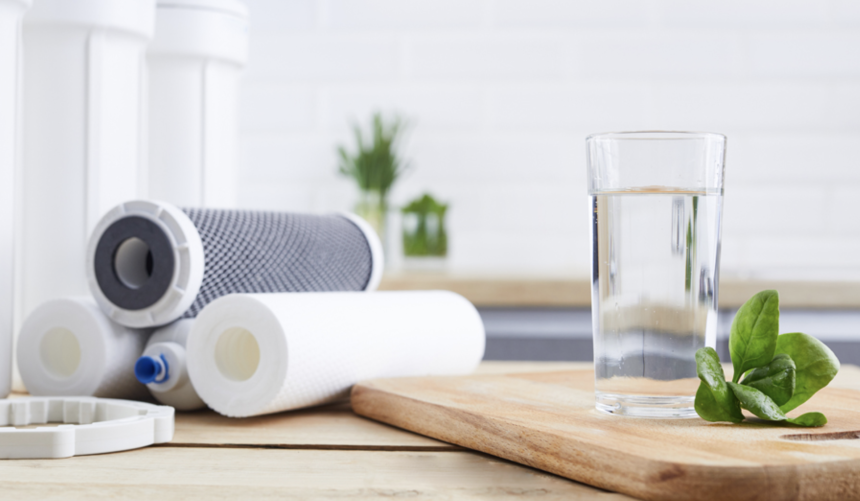“Water, water, everywhere, nor any drop to drink,” claimed the becalmed seaman from Samuel Taylor Coleridge’s classic, The Rime of the Ancient Mariner. Ill fate aside, that sailor of the imaginary seas what not far wrong, water blankets around 71% of the earth’s surface. That’s 326 million cubic miles of water housed on our spinning blue ball, but the bad news is that only 0.5% of the earth’s freshwater is available for drinking and other purposes.
There’s more bad news. The developed world may be privileged enough to have water on tap – but there are hidden dangers in consuming that water, at least in many regions. Much of the water that we consume is from groundwater sources and this is increasingly polluted by agricultural chemicals (including pesticides), heavy metals, and pathogens from untreated sewage.
The fact of the matter is that modern water purification methods are usually effective. However, they rely on machinery and chemicals to get the job done. A lack of a key treatment additive, a mechanical failure or even adverse weather can mean that the water that reaches households can lead to long-term medical problems if consumed regularly.
The Good News
But (finally) there’s some good news to brighten up your day. Domestic reverse osmosis water filters such as the ones provided by acewaterireland.com are widely available, represent excellent value for money – and are an investment in your health and the health of your family.
Does your Home really need a Water Filter?
As mentioned above, the health of your family must be paramount. It may be that modern, large-scale water purification methods are largely effective, but the purification of water at a treatment site is only part of the solution (and even that is subject to failure). Treatment may involve the addition of large quantities of chlorine, commonly used in water treatment plants as a decontaminant, and viewed by many as a health risk). Also, take into account that the water still must be to the home – and much of the municipal piping infrastructure is aging, and under enormous pressure. Leaks caused by cracks are common, leading to water contamination.
Older homes may also have outdated plumbing that is prone to failure. Lack of maintenance can cause older pipes to shed heavy metals into drinking water. It’s worth noting that many legacy household pipes are still made from lead and other materials prone to shedding particles.
However, if you are using well water for household purposes, including drinking water, a water filter is even more vital than would be the case if you had your water piped in by the authorities.
The water that is sourced from wells and delivered to household taps may be contaminated with heavy metals including; arsenic, nickel, cadmium, mercury, zinc, chromium, and lead. Water contaminated with heavy metals can result in health issues that include cardiovascular disorders, neurological (and other central nervous system) damage, renal injuries, as well as a significantly increased risk of cancer and diabetes.
However, it’s not only unnoticed contaminants that can make having a reverse osmosis water filter essential. Those contaminants (and others) can also make their presence felt through water that is discoloured, gritty, foul-tasting, and smelly. A high-quality reverse osmosis water filter will make the experience of drinking water that has come out of a household tap that much more pleasant.
What is a Reverse Osmosis Water Filter?
Put simply, the process of household reverse osmosis water filtration involves forcing water under pressure through a semi-permeable membrane, resulting in fresh, uncontaminated water on one side of the membrane – and on the other, the residue of contaminants. Domestic reverse osmosis water filters use this process to deliver fresh, uncontaminated, and sweet-tasting water to the household.
Although heavy metals, chemicals, and chlorine are high on the list of contaminants, the use of a domestic reverse osmosis filter will also deal with other unwanted contaminants such as dissolved salts, bacteria, organic material, and fluoride.
Protect Yourself and your Family
One merely has to scan the headlines on news sites or in the paper each day to come to the conclusion that our water supply is under threat. It is becoming increasingly contaminated, a trend that is not likely to taper off any time soon due to the pressures of increased urbanisation.
The fat of the matter is that it is not a question of whether you can afford to purchase a domestic reverse osmosis water filter, it is a question of whether you can afford not to. Your family’s health is paramount, and suppliers and installers today have access to world-class domestic water filtration technology – which means that it is available to you as well.
Many experts have said that the next global conflict will probably be sparked by a dispute over fresh water. Scarcity drives conflict – so make sure that the water you enjoy is always available, always healthy, and always tastes great, courtesy of domestic reverse osmosis water filters.
Lynn Martelli is an editor at Readability. She received her MFA in Creative Writing from Antioch University and has worked as an editor for over 10 years. Lynn has edited a wide variety of books, including fiction, non-fiction, memoirs, and more. In her free time, Lynn enjoys reading, writing, and spending time with her family and friends.















